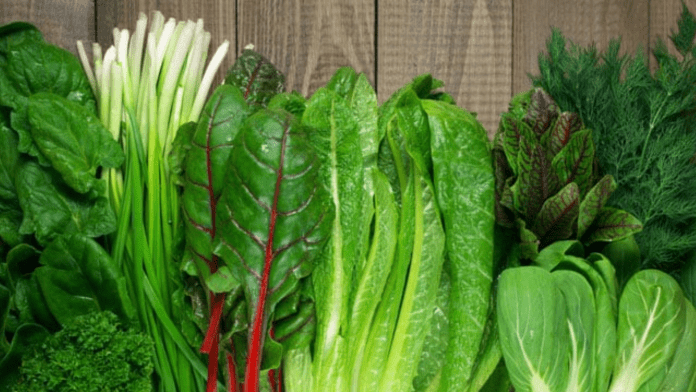World Thalassemia Day is celebrated every year on May 8th to create awareness about Thalassemia and its prevention. Thalassemia is a genetic disorder that affects the production of hemoglobin, which is responsible for carrying oxygen in the blood. People with Thalassemia have fewer red blood cells, which can lead to anemia, fatigue, and other health issues. Thalassemia Major is a severe form of the disorder that requires regular blood transfusions and other treatments to manage symptoms.
While there is no cure for Thalassemia, a healthy diet can play a crucial role in managing the condition and improving overall health. In this article, we will explore how diet can impact Thalassemia Major and share some expert dietary tips for Thalassemia patients.
Understanding Thalassemia Major:
Thalassemia Major is an inherited blood disorder that affects the production of hemoglobin, a protein found in red blood cells that carries oxygen from the lungs to the rest of the body. Thalassemia Major is caused by mutations in the HBB gene, which provides instructions for making beta-globin, a subunit of hemoglobin.
People with Thalassemia Major produce little or no beta-globin, resulting in a severe shortage of functional red blood cells. This can lead to anemia, fatigue, and other health issues, such as jaundice, enlarged spleen, and bone deformities. Thalassemia Major is typically diagnosed in early childhood and requires lifelong treatment to manage symptoms.
The treatment for Thalassemia Major involves regular blood transfusions to replace the missing red blood cells. However, frequent blood transfusions can lead to iron overload, a condition in which excess iron accumulates in the body and can cause organ damage. Iron chelation therapy, which involves taking medications to remove excess iron from the body, is also a common treatment for Thalassemia Major.
How Diet Plays an Essential Role in Thalassemia Management:
While blood transfusions and iron chelation therapy are essential for managing Thalassemia Major, a healthy diet can also play a crucial role in improving overall health and reducing the risk of complications. A balanced diet that includes a variety of nutrient-rich foods can help Thalassemia patients maintain healthy blood counts, reduce inflammation, and support overall immune function.
Dietary Tips for Thalassemia Major Patients:
a. Eat a Balanced Diet:
A balanced diet is essential for everyone, but it is especially important for thalassemia major patients. A balanced diet consists of a variety of foods from different food groups, such as fruits, vegetables, whole grains, lean proteins, and healthy fats. Thalassemia major patients should aim to consume a balanced diet to ensure that they are getting all the necessary nutrients their body needs.
b. Increase Iron Intake:
Iron is essential for the production of hemoglobin in the body. Thalassemia major patients have lower levels of hemoglobin, which means they require more iron than the average person. Foods rich in iron include red meat, poultry, seafood, beans, nuts, and fortified cereals. Thalassemia major patients should try to include these foods in their diet regularly.
c. Include Foods Rich in Folate:
Folate is a B vitamin that is essential for the production of red blood cells in the body. Thalassemia major patients have an increased risk of folate deficiency, which can worsen their anemia symptoms. Foods rich in folate include leafy green vegetables, citrus fruits, beans, peas, and fortified cereals. Thalassemia major patients should try to include these foods in their diet regularly.
d. Limit the intake of Certain Foods:
Some foods can interfere with the absorption of iron in the body. Thalassemia major patients should limit their intake of these foods. Foods that can interfere with iron absorption include tea, coffee, calcium-rich foods, and foods high in phytates, such as whole grains and legumes. Thalassemia major patients should also limit their intake of processed and junk food, as these foods are low in nutrients and can contribute to inflammation in the body.
e. Stay Hydrated:
Dehydration can worsen the symptoms of thalassemia major, such as fatigue and dizziness. Thalassemia major patients should aim to drink plenty of water throughout the day to stay hydrated. They should also avoid sugary drinks and caffeinated beverages, as these can contribute to dehydration.
Thalassemia major is a lifelong condition that requires proper management to improve the quality of life for patients. A proper diet is essential for thalassemia major patients, as it can help manage their symptoms and improve their overall health.
Thalassemia major patients should aim to consume a balanced diet that includes foods rich in iron and folate. They should also limit their intake of certain foods that can interfere with iron absorption and stay hydrated by drinking plenty of water throughout the day.
By following these expert dietary tips, thalassemia major patients can improve their health and well-being. On World Thalassemia Day, let us spread awareness about thalassemia major and the dietary needs of thalassemia major patients.


